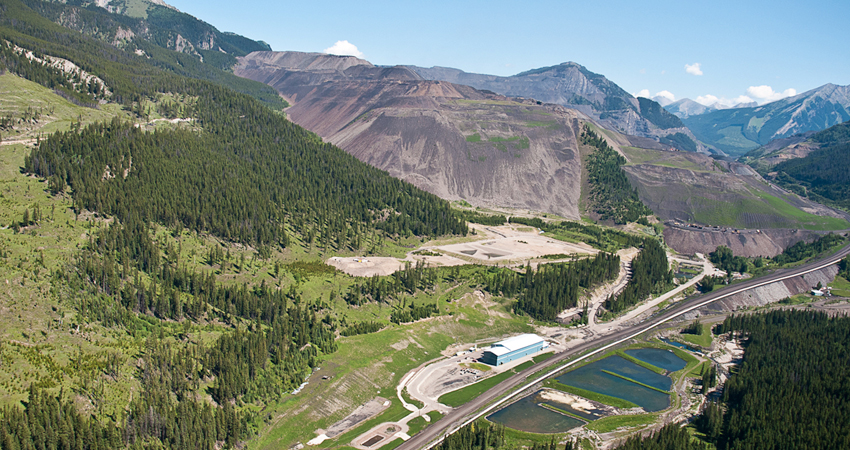to collaborate on reducing river pollution from BC coal mines
Staff Writer | March 11, 2024 |

Line Creek, in the Elk Valley region of British Columbia. Image from Teck Resources.
The United States and Canada announced Monday they have agreed to cooperate to reduce and mitigate the impacts of water pollution from coal mines originating in British Columbia’s Elk-Kootenai/y watershed.

A research panel will look for ways to reduce contamination from coal mines in B.C.’s Elk Valley flowing into Lake Koocanusa, a reservoir straddling the border and into US rivers. Due to pollution concerns in this watershed, the US and Canada asked International Joint Commission (IJC) to establish a two-year study board.
Indigenous groups in British Columbia, Montana and Idaho had lobbied for intervention by both federal governments to stop the flow of coal pollution, the Associated Press reported.
Elevated levels of selenium have reportedly been found in fish and fish eggs from Montana’s Kootenai River, downstream from coal mines in the Elk River Valley. A legal action filed in May 2023 in Montana named Teck Coal Ltd. as one of three defendants in a request for judicial review by environmental groups in Montana and Idaho over levels of contamination from its British Columbia mines in US waters.
“Our two countries are committed to a collaborative, science, and Indigenous knowledge based, action-oriented path forward,” the Ambassador of the United States to Canada, David L. Cohen and the Ambassador of Canada to the United States, Kirsten Hillman said in a joint statement.
Canada and the US will work in partnership with Tribal Nations and Indigenous Peoples, consistent with the principles outlined in the United Nations Declaration on the Rights of Indigenous Peoples, have asked the IJC to assist federal and Indigenous governments, British Columbia, Idaho, and Montana, to establish a formal governance structure by June 30, 2024, the ambassadors said.
Staff Writer | March 11, 2024 |

Line Creek, in the Elk Valley region of British Columbia. Image from Teck Resources.
The United States and Canada announced Monday they have agreed to cooperate to reduce and mitigate the impacts of water pollution from coal mines originating in British Columbia’s Elk-Kootenai/y watershed.

A research panel will look for ways to reduce contamination from coal mines in B.C.’s Elk Valley flowing into Lake Koocanusa, a reservoir straddling the border and into US rivers. Due to pollution concerns in this watershed, the US and Canada asked International Joint Commission (IJC) to establish a two-year study board.
Indigenous groups in British Columbia, Montana and Idaho had lobbied for intervention by both federal governments to stop the flow of coal pollution, the Associated Press reported.
Elevated levels of selenium have reportedly been found in fish and fish eggs from Montana’s Kootenai River, downstream from coal mines in the Elk River Valley. A legal action filed in May 2023 in Montana named Teck Coal Ltd. as one of three defendants in a request for judicial review by environmental groups in Montana and Idaho over levels of contamination from its British Columbia mines in US waters.
“Our two countries are committed to a collaborative, science, and Indigenous knowledge based, action-oriented path forward,” the Ambassador of the United States to Canada, David L. Cohen and the Ambassador of Canada to the United States, Kirsten Hillman said in a joint statement.
Canada and the US will work in partnership with Tribal Nations and Indigenous Peoples, consistent with the principles outlined in the United Nations Declaration on the Rights of Indigenous Peoples, have asked the IJC to assist federal and Indigenous governments, British Columbia, Idaho, and Montana, to establish a formal governance structure by June 30, 2024, the ambassadors said.
No comments:
Post a Comment